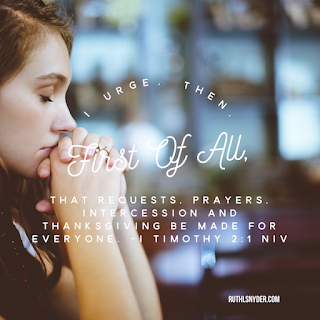“I am a little pencil in the
hand of a writing God
who is sending a love letter
to the world.”
~Mother Teresa
I
have many writing resource books on my bookshelves and several more on my Kobo eReader.
I also have some well-liked writer’s websites and blogs. I can’t possibly cover
all of them in a single blog post, so I’ll focus on a few favourites that I’ve
found useful in helping me to write to God’s glory.
#1 - The Holy Bible,
Bible Commentaries, & Bible Concordances: I want to ensure my
words faithfully reflect God’s loving message, so I regularly pray and read His
Word. I search for relevant Bible verses that will help me to make my points and
impact reader’s lives. I have several Bible versions on my bookshelves, the
NIV, KJV, NKJV, NRSV, NLT, to name just a few. I quote verses from whichever
version expresses my thoughts the best. I also consult such Bible study guides
as The Bethany Parallel Commentary and
The New Strong’s Concordance. I
regularly visit Bible websites to quickly locate passages, like Biblehub and Biblegateway.
#2 - Elements of
Fiction Writing Series by Writer’s Digest Books: This is a terrific
how-to-write series that includes Nancy Kress’s Dynamic Characters and Beginnings,
Middles, & Ends; Orson Scott Card’s Characters
& Viewpoint; and James Scott Bell’s Conflict
& Suspense and Plot &
Structure, and several others.
#3 - Busy Writer’s
Guides by Marcy Kennedy: Showing and Telling
in Fiction,
Strong Female Characters, Dialogue, How to Write Faster, and more. This series of short guides is great
when you’re in the middle of writing and want a quick reference.
#4 - Grammar/Editing
Blogs: Mignon
Fogarty’s Grammar Girl blog is my first go-to
for answers to questions about correct grammar or punctuation. I also like the
following: Grammarly Blog, Writer’s Relief, The Editor’s Blog, Jane Friedman’s blog, and C.S. (Susanne) Lakin’s Live Write Thrive. Other favourite
grammar resources are The Elements of
Style by William Strunk, Jr. and E.B. White, Coles Notes Handbook of English Grammar and Composition,
Canadian Secretary’s Handbook by
Collier Macmillan (A treasured 80’s holdover from my secretarial days.), and a
quick little reference book, Write!
Better by Ray Wiseman.
#5 - Joanna Penn’s
Blog, Books, & Podcasts: Joanna Penn is a bestselling author,
international speaker, and award-winning entrepreneur. She’s written several
self-help books for writers, including How
to Make a Living with Your Writing, How
to Market Your Book, and Successful
Self-Publishing. Her blog The Creative Penn is a favourite among
creative writers. She also has a popular podcast, The Creative Penn.
#6 - Writer’s
Magazines/Newsletters: My favourite writer’s magazines are InScribe’s FellowScript (I may be just a bit
biased!), the Saskatchewan Writers’ Guild’s, Freelance, and The Writer’s
Digest (along with their website).
#7 - Writer’s
Organizations/Websites: InScribe Christian
Writers’ Fellowship
and The Saskatchewan Writer’s Guild. Besides their
quarterly magazines, both of these writers’ groups have lots of valuable
information on their websites and provide great conferences, workshops, and
courses for writers.
#8 - Dictionary,
Thesaurus, & Quotations Dictionary: I love my well-used hardcover copies of the Oxford Thesaurus, Canadian Oxford Dictionary, and Oxford
Dictionary of Quotations.
#9 - Poetry
Resources: Creating Poetry by John Drury, The Poet’s Dictionary by William
Packard, Writing the Sacred by Ray
McGinnis, and Merriam-Webster’s Rhyming
Dictionary.
#10 - Writers’ Market
Guides: The Canadian Writer’s
Market,
The Christian Writer’s Market Guide, Poet’s Market, and The Best of the Magazine Market for Writers.
Do your best to present yourself to God as one approved, a
worker who does not need to be ashamed and who correctly handles the work of
truth.
~2 Timothy 2:15
Photo
Credits: © Nina Faye Morey


























